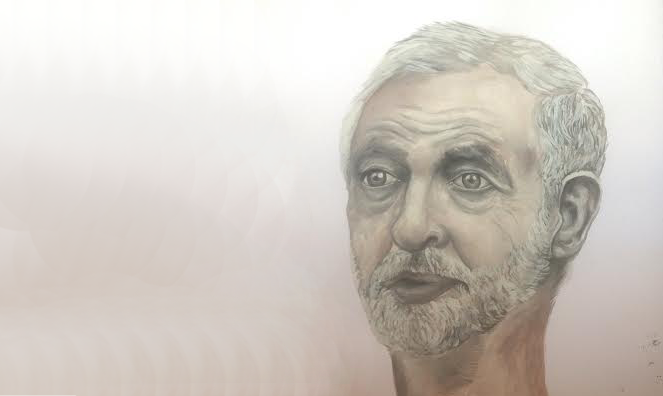The decision by the British people to leave the European Union was a seismic one, the consequences of which are beginning to be felt already, in spite of the fact that it will be at least two years until the UK actually leaves. Nearly immediately after the result was known on Friday morning, David Cameron had resigned, while on the opposite benches, rumblings about Jeremy Corbyn’s performance during the campaign seeped into the media over Friday and Saturday. Calls for a vote of confidence came forward and Hilary Benn’s subsequent sacking from the Labour shadow cabinet after failing to express confidence in Corbyn, set things into rapid motion.
The Labour shadow cabinet and front bench slowly began to fall apart over the following days. Between Monday and Wednesday, over 40 shadow cabinet members and shadow ministers resigned. It was unbelievable how unlucky Corbyn had got it – except it wasn’t. This was a long planned coup according to some Corbyn backers and the evidence supports this theory. Resignations came in an orderly manner over the course of two or three days with a couple per hour, ensuring the story had an almost constant presence in the press, exerting maximum pressure on Corbyn.
Each resignation was followed by a lengthy albeit nearly identical letter, praising Corbyn as an individual but noting he was not fit for the job. After the resignations came through, the insurgents forced through the confidence motion in spite of Corbyn backers attempting to delay. It now also appears as though the ousters will unite behind one candidate (possibly Angela Eagle) in order to maximise their chances of success. Make no mistake, what we are witnessing is a precise political assassination, planned with great thought. It therefore follows that there were problems identified with Corbyn for some time.
Why Corbyn Must go
While the Machiavellian take-down of Corbyn would make one question the intentions of the rebels, the reasons for getting rid of Corbyn are quite apparent. Corbyn, a disciple of Tony Benn, is to the left of what is already a left party, who holds views that are at odds with the more centre-left image the party had cultivated over the past decade. He also held (and perhaps continues to hold) unpopular opinions on the role of the monarchy and he has made controversial statements on the I.R.A. and the State of Israel in the past. Even if one were to forgive his errant opinions, Corbyn has not been an effective opposition leader against Cameron.
In spite of a myriad of Tory difficulties in areas such as health (with continuing problems in the NHS), taxation (with the fiasco in relation to the working tax credit) and social policy (with Iain Duncan Smith’s resignation), Corbyn has not capitalised in the media or in polls. Corbyn, as a leader, is not connecting with voters with recent internal polling suggesting that 1/3 of voters of Labour from the last general election (2015) were hesitant to vote for them again.
Even if the coup was planned for the reasons outlined long before the Brexit campaign kicked off, Corbyn did not do himself any favours in how he approached the referendum. In spite of the fact that there was much more of a consensus in the Labour party than there was with the Tories with a resounding majority of members and MPs in favour of remaining in Europe, Corbyn was quiet in comparison to his opposite number. Corbyn made much fewer media appearances and when he did, he sent out mixed messages – he wasn’t totally enthusiastic about Europe (“seven and a half out of 10”) and he took shots at the Remain camp’s arguments in relation to the potential economic harm of Brexit (“hype and histrionics”).
Future of the Labour Party
Corbyn’s lack of leadership and his resultant unpopularity in the parliamentary Labour party, lead to even greater worries than just mere poor polling though. Some local members and MPs have reportedly looked into breaking away from the “official Labour” party. Even mention of this idea is unprecedented in British politics and would be catastrophic for the future of the UK if it were to come to fruition. Regardless of a person’s political views, everyone agrees that a strong opposition is required to hold government to account. In Ireland, the last Dáil was arguably not properly held to account by a weak opposition of Fianna Fáil, Sinn Féin and other splintered groups and independents.
In the UK, the implosion of the Labour party as could occur if Corbyn persists as leader, would lead to a splintered left vote in single-seater first-past-the-post constituencies making it even easier for the Conservatives (who appear to be much more adept at orderly party infighting than Labour based on events this week) to gain a large majority and face a weaker, fractured opposition. This would be tragic at a time when the government will have to be closely monitored as vital future decisions are made during the UK’s exit negotiations and beyond. Some may argue that the defectors are to blame, but if Corbyn were a strong, unifying leader this sort of talk would not even be uttered.
Clearly the Labour party membership has moved more to the left following Blair’s “New Labour” as Corbyn was elected with an overwhelming majority last year, a legitimate response to the events of the 2008 recession. Ordinary members must realise, however, that there is a difference between agreeing with someone’s opinions and that individual having the necessary skills to bring those ideas to fruition. Corbyn might be a nice guy and his opinions might be supported by ordinary members, but he is clearly not up to the challenge of leading the Labour party. A new leader is required to allow for the best possible outcome for the party and for British politics in general.
Illustration:Amy Regan







